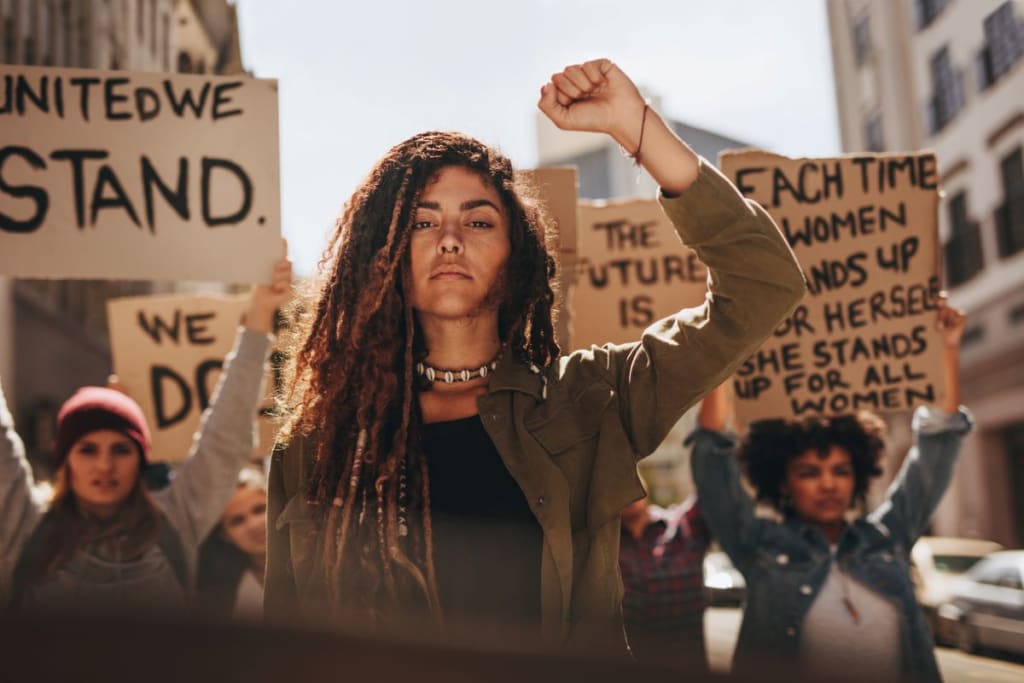Women's Contributions and Challenges in Society: Achieving Equality and Empowerment
Exploring the impact of women in different fields and the obstacles they face in their quest for gender equality and empowerment.

The Strong, Resilient and Diverse Force of Society
Women have played a vital role in shaping society throughout history. From the early days of civilization to the present, they have demonstrated their strength, resilience, and diversity in various aspects of life. They have been leaders, activists, educators, and caretakers, among many other roles. In this article, we will explore the contributions of women to society and the challenges they have faced and continue to face in their quest for equality and empowerment.
Women have made significant contributions to society in various fields, such as science, technology, engineering, mathematics (STEM), politics, and the arts. In STEM, for example, women like Rosalind Franklin and Chien-Shiung Wu have made groundbreaking discoveries and inventions. Franklin's work on X-ray crystallography helped to determine the structure of DNA, which is crucial in understanding the genetic makeup of living organisms. Her work was vital in the discovery of the double helix structure of DNA by James Watson and Francis Crick. Wu's experiments disproved the law of conservation of parity, a principle in physics, which led to the development of the electroweak theory and the understanding of the weak force in atomic nuclei.
In politics, women like Kamala Harris and Angela Merkel have broken barriers and become leaders at the highest levels of government. Harris was the first woman, and the first woman of color, to serve as the Vice President of the United States, while Merkel was the first female chancellor of Germany. They both have shown exceptional leadership skills and have faced challenges that come with being a woman in a male-dominated field, but they have emerged victorious. Moreover, their leadership has set a path for many young women to aspire to hold political positions.
In the arts, women like Frida Kahlo and Maya Angelou have left indelible marks with their paintings and writings, respectively. Frida Kahlo, a Mexican painter, is famous for her self-portraits that depict her physical and emotional pain as well as her political and social views. Maya Angelou, an American poet, is renowned for her writings that depict the struggle of the African American community, especially the women. Her works have been instrumental in raising awareness about the issues of racism and sexism.
Women have also been at the forefront of various social and political movements throughout history, including the suffrage movement, the civil rights movement, and the feminist movement. They have fought for the right to vote, the right to own property, the right to education, and the right to control their own bodies. Women like Susan B. Anthony, Elizabeth Cady Stanton, and Sojourner Truth were key figures in the suffrage movement, which led to the passage of the 19th Amendment to the United States Constitution, giving women the right to vote. Women like Rosa Parks, Angela Davis, and Fannie Lou Hamer were prominent figures in the civil rights movement, fighting for the rights of African Americans. Women like Betty Friedan, Simone de Beauvoir, and Gloria Steinem were influential figures in the feminist movement, which sought to challenge and change societal norms and expectations for women.
Despite these contributions and achievements, women continue to face challenges in their quest for equality and empowerment. In many parts of the world, women still earn less than men for the same work, and are underrepresented in leadership roles. They also continue to be the victims of violence, both at home and in the workplace. Moreover, women from marginalized communities face additional barriers, such as racism and sexism. For example, a study by the World Economic Forum showed that the gender pay gap is still prevalent in many countries, and that it will take 217 years to close this gap globally.
Additionally, women are underrepresented in leadership positions in both the public and private sectors. According to a report by McKinsey & Company, only 25% of senior leadership positions are held by women worldwide. Furthermore, women are more likely to experience sexual harassment and discrimination in the workplace, which can have a negative impact on their careers and overall well-being.
Moreover, women from marginalized communities face additional barriers, such as racism and sexism. Women of color, for example, often face discrimination based on their race, as well as their gender. They may be paid less, have fewer opportunities for advancement, and experience more discrimination than white women. Additionally, indigenous women and women with disabilities face additional barriers that limit their access to education, employment, and healthcare.
In light of these challenges, it is essential that we continue to support and uplift the voices and leadership of women. This can be done by promoting policies and practices that support gender equality, such as equal pay for equal work, paid parental leave, and flexible working arrangements. Additionally, creating a culture of inclusivity and respect in the workplace, and promoting the representation of women, especially women of color, in leadership positions is crucial. Furthermore, providing education and resources to women from marginalized communities to empower them and help them overcome the barriers they face, is also important.
Conclusion
Women have played a vital role in shaping society throughout history. They have demonstrated their strength, resilience, and diversity in various aspects of life. From making groundbreaking discoveries in STEM fields to breaking barriers in politics and the arts, women have made significant contributions to society. Despite the challenges they have faced and continue to face, women remain a powerful force for change and progress. It is essential that we continue to support and uplift the voices and leadership of women, as they work towards achieving true equality and empowerment. We must take actions to close the gender pay gap, promote representation of women in leadership positions, and provide education and resources to women from marginalized communities. Only then, we will see a truly equal and inclusive society.
*Women have made significant contributions to society in various fields such as science, technology, engineering, mathematics, politics and the arts.
*Women have been at the forefront of various social and political movements throughout history such as the suffrage movement, the civil rights movement, and the feminist movement.
*Despite these contributions and achievements, women continue to face challenges in their quest for equality and empowerment such as pay gap, underrepresentation in leadership roles, and violence.
*Women from marginalized communities face additional barriers, such as racism and sexism.
*It is essential that we continue to support and uplift the voices and leadership of women, by promoting policies and practices that support gender equality, creating a culture of inclusivity and respect in the workplace, and providing education and resources to women from marginalized communities.





Comments
There are no comments for this story
Be the first to respond and start the conversation.